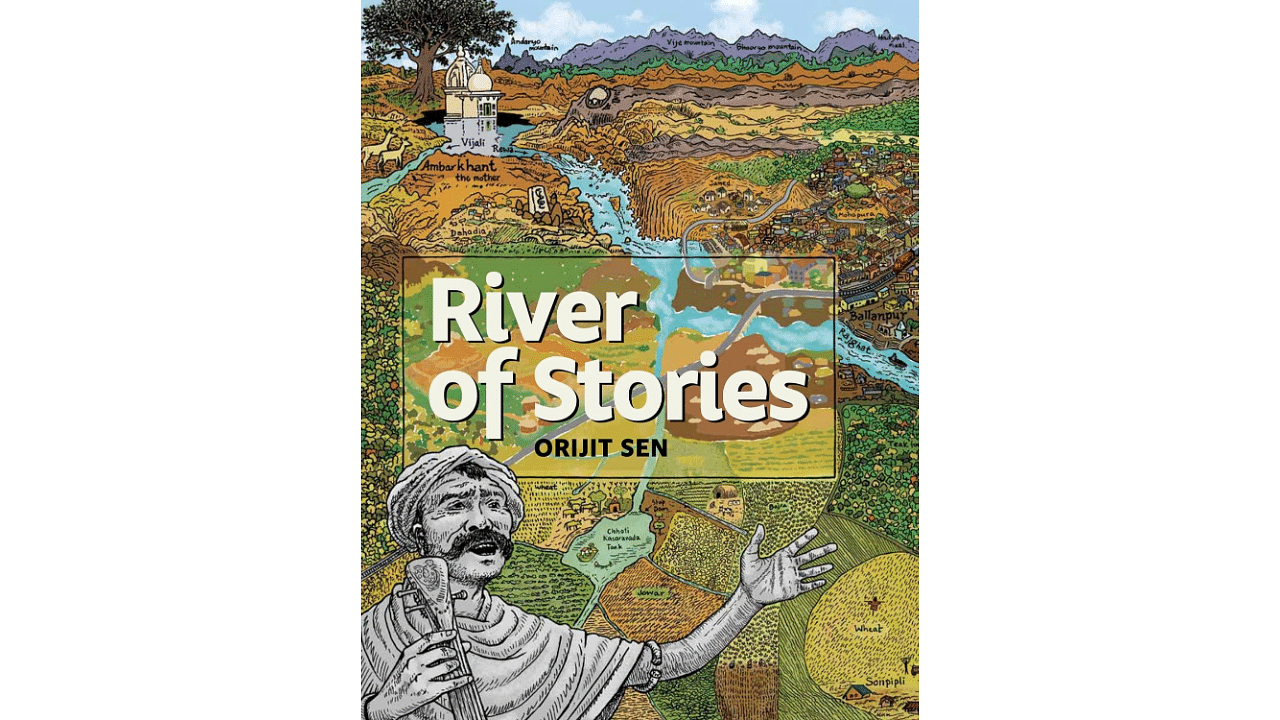
River Of Stories
In the last few months, when the world has seen so much bloodshed and heartbreak, a story has circulated on the internet about a pacifist in the 1960s in the US. A lone man was seen standing with a candle every night outside the White House to protest the Vietnam War. Somebody once asked him if he thought this action would change the way things were, to which he is said to have replied, “I don’t do it to change the country, I do it so the country won’t change me”.
This figure of a lone dissenting voice standing up for his beliefs is a parable for our times when we have seen waves of protests take over the streets, not only in India but around the world. In just the last few years, thousands of people gathered around the country to protest the Citizenship (Amendment) Act and the National Register of Citizens. Farmers agitated for months to oppose three farm laws drawn up in Parliament. Indian wrestlers and sportspeople protested the sexual harassment women faced. Students, teachers, doctors, truck drivers and bankers have marked their dissent against laws, policies and scenarios that they do not agree with.
In her latest book, Voices of Dissent, Romila Thapar explores the different forms of dissent that have shaped and informed pre-modern and modern India. The book was based on two lectures that she delivered in 2019 on religion in early India and Gandhi’s Satyagraha, and she brings together different ideas to explain how forms of dissent have existed over time, and how the public response has been changed and shaped by dissent. It is her view that “the study of dissent is essential to understanding how civilisations evolved for there cannot be any advance in knowledge without a questioning of the world we live in”.
In her lucid, rigorous and eloquent style, Thapar looks at how dissent has propelled societies forward in the Indian subcontinent, arguing that it has a much older history than how we understand it as a right in democratic societies today. For most of Indian history, there have always been sections of society that do not quite accept or agree with the way things are. It has been through differences of opinion around issues of substance that alternative practices and ideas have emerged over time. She begins with examples from religion.
Thapar goes on to show us how the practice of dissent against established norms defined public life well before the Indian anti-colonial struggle, and how symbols and ideas from history eventually informed Gandhi’s satyagraha.
A great many books from India showcase the rich history of dissent that has shaped our present. Orijit Sen, in his graphic novel River of Stories, brings alive the history of the Narmada Bachao Andolan, an environmental and people’s movement by Adivasis against the building of the big dam. The book serves to remind us of the tragedy of modern development which led to the destruction of a whole ecosystem and cultural identity and history of a people. The Chipko Movement: A People’s History by Shekhar Phatak tells us about the history of another non-violent environmental protest which is understood to be a major landmark in environmental activism in India.
Halla Bol by Sudhanva Deshpande tells us about Safdar Hashmi and his murder and the work of Jan Natya Manch and its use of street theatre to talk about worker’s rights, peasant rights, violence against women and unemployment. The book not only tells us the story of Safdar but also about the powerful force of street theatre as a political form of dissent. In a similar vein, Inquilab Zindabad by Ikroop Sandhu is a graphic biography of Bhagat Singh, a fearless student leader and freedom fighter. Closer to the present, Shaheen Bagh and The Idea Of India by Seema Mustafa and Shaheen Bagh: A Graphic Recollection by Ita Mehrotra recall the months-long sit-in by Muslim women to protest the CAA in 2020 before the first lockdown.
These books offer us a glimpse into the many ways in which citizens of India have stayed true to their understanding of what society can and should be and they show us vividly how so much of what we take for granted in our lives exists because people have been unafraid to speak up.
Piqued is a monthly column in which the staff of Champaca Bookstore bring us unheard voices and stories from their shelves.
The author is a writer and editor based in Mysuru. She enjoys non-fiction about politics and society, and the punny brilliance of Anthea Bell.